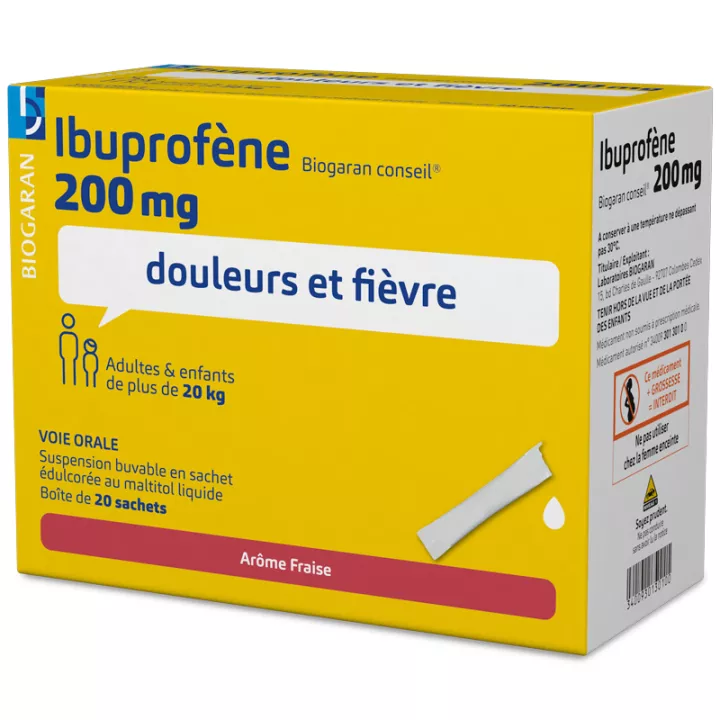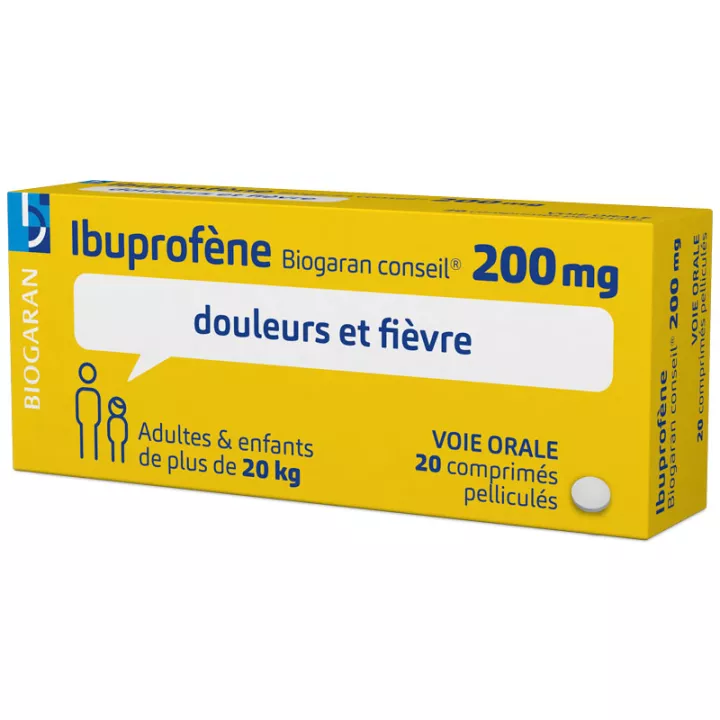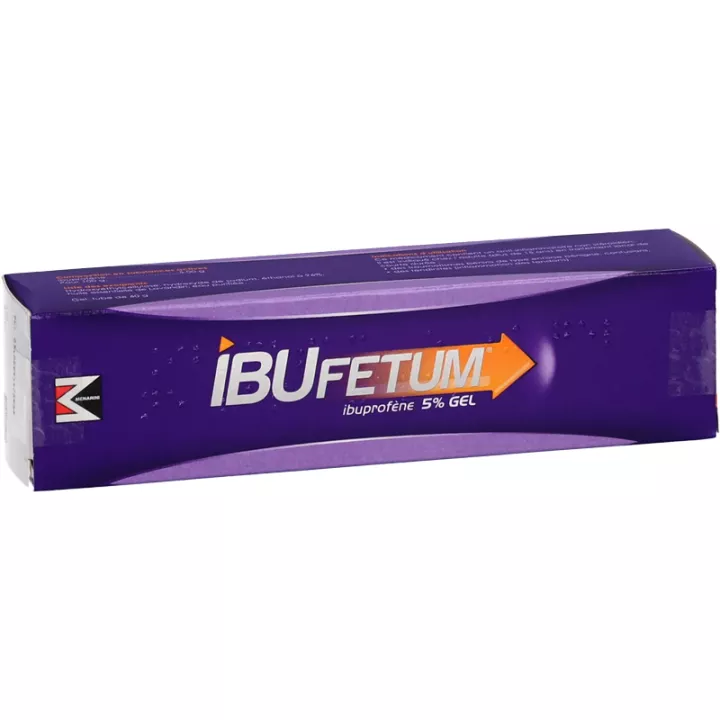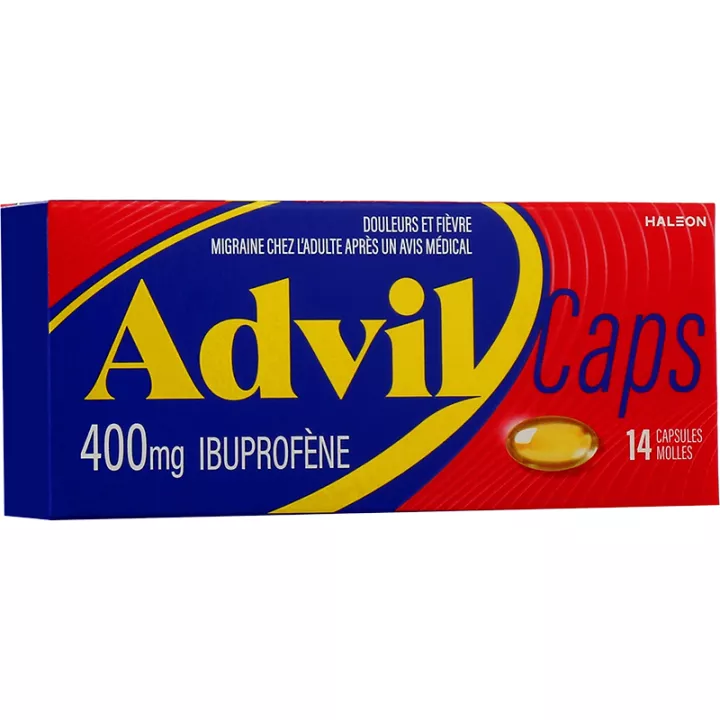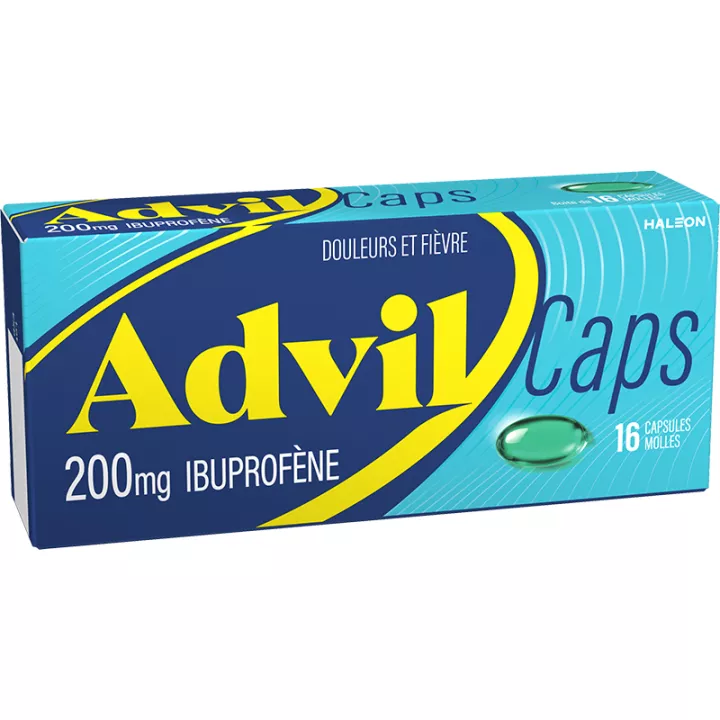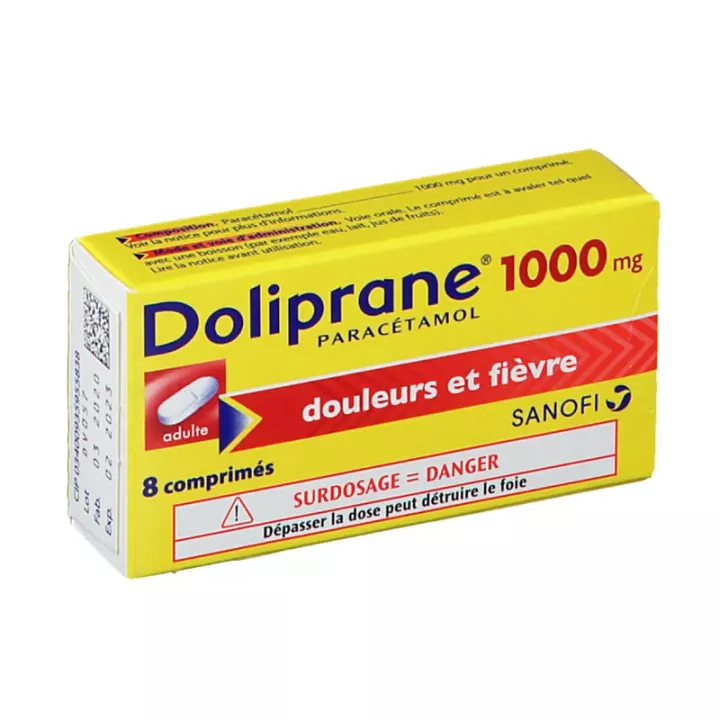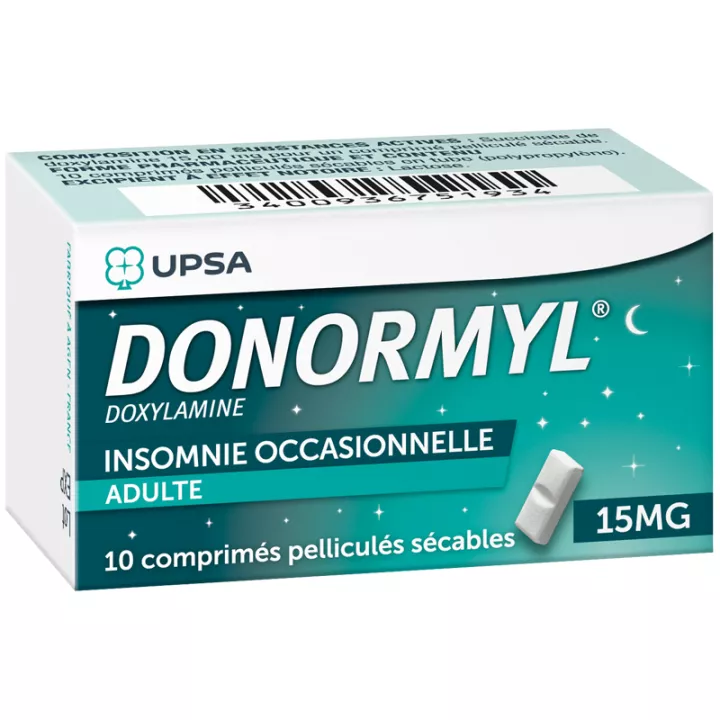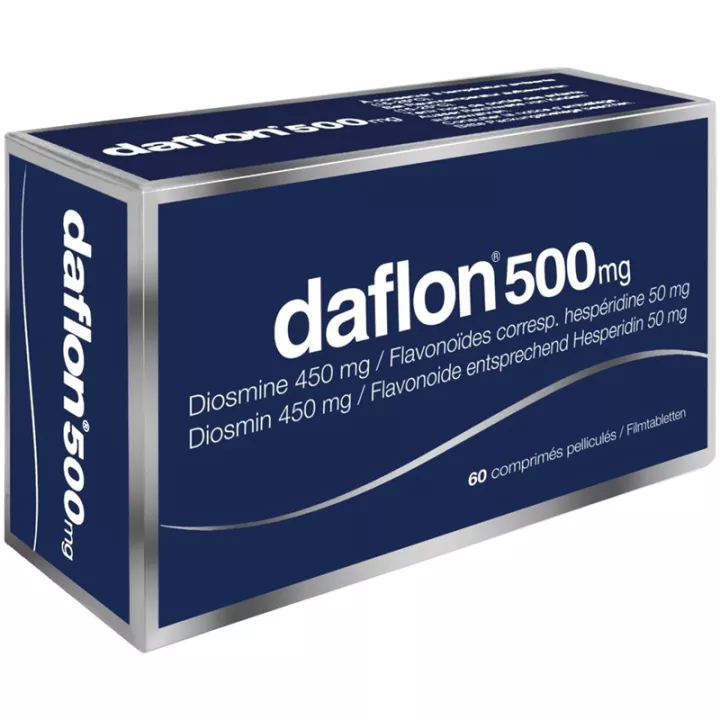NOTICE
ANSM - Updated on: 25/08/2017
Name of the medicinal product
IBUPROFENE BIOGARAN CONSEIL 200 mg film-coated tablet
Ibuprofen
framed
Please read this leaflet carefully before you start taking this medicine because it contains important information for you.
You should always take this medication exactly as prescribed in this leaflet or by your doctor, pharmacist or nurse.
· Keep this leaflet. You might need to read it again.
· Ask your pharmacist for advice or information.
· If you experience any side effects, talk to your doctor, pharmacist or nurse. This also applies to any side effects not mentioned in this leaflet. See section 4.
· You should contact your doctor if you experience no improvement or feel less well after:
o 3 days for children and adolescents
o 3 days in case of fever and over 5 days in case of pain in adults.
What is in this leaflet?
1. What is IBUPROFENE BIOGARAN CONSEIL 200 mg film-coated tablet and in which cases is it used?
2. What information should I take before taking IBUPROFENE BIOGARAN CONSEIL 200 mg film-coated tablet?
3. How to take IBUPROFENE BIOGARAN CONSEIL 200 mg film-coated tablet?
4. What are the possible side effects?
5. How to store IBUPROFENE BIOGARAN CONSEIL 200 mg film-coated tablet?
6. Package contents and other information.
1. WHAT IS IBUPROFENE BIOGARAN COUNCIL 200 mg film-coated tablet AND WHAT IT IS USED FOR?
Pharmacotherapeutic group: OTHER ANALGESICS AND ANTIPYRETICS - ATC code: M0AE01. / N02B.
This medicine contains a non-steroidal anti-inflammatory drug: ibuprofen. In adults and children over 20 kg (about 6 years), it is indicated in the short-term treatment of fever and / or pain such as headache, flu-like conditions, dental pain, aches and pains.
2. BEFORE YOU TAKE IBUPROFENE BIOGARAN CONSEIL 200 mg film-coated tablet?
Do not take IBUPROFENE BIOGARAN CONSEIL 200 mg film-coated tablets:
· if you are allergic to ibuprofen or any of the other ingredients of this medication mentioned in section 6,
· after 5 months of pregnancy (24 weeks of amenorrhea),
· a history of allergy or asthma triggered by the use of this drug or a related drug, including other non-steroidal anti-inflammatory drugs, acetylsalicylic acid (aspirin), rhinitis, swelling or urticaria,
· antecedent allergy to the other constituents of the tablet,
· history of gastrointestinal bleeding or ulcers associated with previous NSAID treatments,
· ulceration or bleeding of the stomach or intestine in progress or recurrence,
· gastrointestinal haemorrhage, cerebral hemorrhage or other ongoing hemorrhage,
· severe liver disease,
· severe kidney disease,
· serious heart disease,
· systemic lupus erythematosus,
· child under 6 years old because it can swallow and choke.
IN CASE OF DOUBT, IT IS ESSENTIAL TO ASK FOR THE OPINION OF YOUR DOCTOR OR YOUR PHARMACIST.
Warnings and Precautions
Talk to your doctor or pharmacist before taking IBUPROFENE BIOGARAN CONSEIL 200 mg film-coated tablet .
In high doses, greater than 1200 mg / day, this drug has anti-inflammatory properties and can cause serious disadvantages that are observed with non-steroidal anti-inflammatory drugs.
Anti-inflammatory / analgesic drugs such as ibuprofen are likely to be associated with a slightly increased risk of heart attack or stroke, especially when used at high doses. Do not exceed recommended dosage or treatment time.
Discuss your treatment with your doctor or pharmacist before taking IBUPROFENE BIOGARAN TIP if you:
· have heart problems, heart failure, angina pectoris (chest pain), or if you have had a heart attack, surgical bypass, peripheral arterial disease (poor circulation in the legs or feet due to narrowed arteries or stroke) or any type of stroke (including "mini-stroke" or transient ischemic attack (TIA)),
· have high blood pressure, diabetes, high cholesterol, a family history of heart disease or stroke or if you are a smoker.
There is a risk of renal failure in dehydrated children and adolescents.
If you are a woman, IBUPROFENE BIOGARAN TIP can alter your fertility. Its use is not recommended in women who wish to conceive a child. For women who have reproductive difficulties or who are undergoing reproductive function tests, please talk to your doctor or pharmacist before taking IBUPROFENE BIOGARAN CONSEIL.
Elderly patients have a higher risk of adverse effects, particularly for gastrointestinal haemorrhage, ulcers and perforations. Renal, hepatic and cardiac functions should be closely monitored. The dosage should be as low as possible for the shortest time needed to relieve symptoms.
BEFORE YOU USE THIS MEDICINE, CONSULT YOUR DOCTOR IN CASE:
· a history of asthma associated with chronic rhinitis, chronic sinusitis or polyps in the nose.
The administration of this specialty may lead to an asthma attack, especially in some people allergic to acetylsalicylic acid (aspirin) or a non-steroidal anti-inflammatory drug (see section "Do not take IBUPROFENE BIOGARAN CONCIL 200 mg film-coated tablet ")
· coagulation disorders, and anticoagulant therapy. This medication may cause severe gastrointestinal symptoms,
· digestive antecedents (hiatal hernia, digestive hemorrhage, old stomach or duodenal ulcer),
· heart disease, liver or kidney disease,
· of varicella. This medication is not recommended because of exceptional severe infections of the skin,
· concomitant treatment with other drugs that increase the risk of peptic ulcer or haemorrhage, eg, oral corticosteroids, antidepressants (SSRIs, ie, Selective Serotonin Recapture Inhibitors), medicines preventing the formation of blood clots such as aspirin or anticoagulants such as warfarin. If you are in one of these cases, consult your doctor before taking IBUPROFENE BIOGARAN COUNCIL (see section " Other medicines and IBUPROFENE BIOGARAN CONSEIL 200 mg film-coated tablets "),
· concomitant therapy with methotrexate at doses greater than 20 mg per week or with pemetrexed (see section " Other medicines and IBUPROFENE BIOGARAN TIP 200 mg, film-coated tablet. ").
DURING TREATMENT, IN CASE OF:
· of vision problems, PREVENT YOUR DOCTOR,
· gastrointestinal haemorrhage (discharge from the mouth or stool, stool coloration in black), STOP TREATMENT AND IMMEDIATELY CONTACT AN EMERGENCY MEDICAL OR MEDICAL SERVICE,
· of appearances of cutaneous or mucosal signs that resemble a burn (redness with bubbles or blisters, ulcerations), STOP THE TREATMENT AND CONTACT IMMEDIATELY A DOCTOR OR AN EMERGENCY MEDICAL SERVICE,
· of allergy-related signs of asthma, such as an asthma attack or abrupt swelling of the face and neck (see section "What are the possible side effects?")
STOP TREATMENT AND IMMEDIATELY CONTACT AN EMERGENCY MEDICAL OR MEDICAL SERVICE.
This medicine contains a non-steroidal anti-inflammatory drug: ibuprofen.
You should not take other medicines containing non-steroidal anti-inflammatory drugs (including selective cyclooxygenase 2 inhibitors) and / or acetylsalicylic acid (aspirin) at the same time as this medication. Read carefully the instructions for other medicines you are taking to ensure that there are no nonsteroidal anti-inflammatory drugs and / or acetylsalicylic acid (aspirin).
Children and Youth
Not applicable.
Other medicines and IBUPROFENE BIOGARAN CONSEIL 200 mg film-coated tablet
Inform your doctor or pharmacist if you are taking, have recently taken or may take any other medicines.
Always inform your doctor, dentist or pharmacist if you are taking any of the following medicines in addition to IBUPROFENE BIOGARAN TIP:
· aspirin (acetylsalicylic acid) or other non-steroidal anti-inflammatory drugs
· corticosteroids
· lithium
· methotrexate
· angiotensin converting enzyme inhibitors, diuretics, beta-blockers and angiotensin II antagonists
· some antidepressants (selective serotonin reuptake inhibitors)
· pemetrexed
· ciclosporin, tacrolimus
· other non-steroidal anti-inflammatory drugs (NSAIDs), including selective cyclooxygenase-2 inhibitors
· medicines used to treat pain and inflammation (example) acetylsalicylic acid unless low doses have been advised by the doctor
IBUPROFENE BIOGARAN COUNCIL is likely to affect or be affected by certain other medicines. for example
· anticoagulant medications (ie, which fluidize the blood / prevent the appearance of clots such as aspirin / acetylsalicylic acid, warfarin, ticlopidine)
· drugs that reduce high blood pressure (ACE inhibitors such as captopril, beta-blockers such as atenolol, angiotensin II receptor antagonists such as losartan)
Some other medicines are also likely to affect or be affected by treatment with IBUPROFENE BIOGARAN CONSULTING. Therefore, you should always seek advice from your doctor or pharmacist before using IBUPROFENE BIOGARAN CONSEIL together with other medicines.
· Cardiac glicosides such as digoxin which are drugs used in many cardiac pathologies because their effects can be increased.
· Mifepristone (a drug used for termination of pregnancy). IBUPROFENE BIOGARAN CONSEIL should not be used within 8-12 days after taking mifepristone because the effect of mifepristone may be reduced.
· Zidovudine (a drug for the treatment of AIDS) because with the use of IBUPROFENE BIOGARAN COUNCIL there is an increased risk of hemarthrosis and hematomas in hemophiliac patients with HIV.
IBUPROFENE BIOGARAN TIP 200 mg, film-coated tablets with food, drinks and alcohol
Not applicable.
Pregnancy, breast-feeding and fertility
If you are pregnant or breastfeeding, think you may be pregnant or plan a pregnancy, ask your doctor for advice or pharmacist before taking this medication.
Pregnancy
During the first trimester (12 weeks of gestation is 12 weeks after the 1st day of your last period), your doctor may, if necessary, to prescribe the drug.
For 2.5 to 5 months of pregnancy (12 to 24 weeks of amenorrhea), this medication will only be used on the advice of your doctor and in brief dosage. Prolonged use of this medication is strongly discouraged.
After 5 months of pregnancy (beyond 24 weeks of amenorrhea), you should NOT take this medication because its effects on your child can have serious consequences, especially on the cardiopulmonary level and renal, even with a single dose.
If you are taking this medication when you are more than five months pregnant, please speak to your obstetrician gynecologist for appropriate monitoring.
feeding
This drug passes into breast milk. As a precaution, it should be avoided during breastfeeding.
Female fertility
IBUPROFENE BIOGARAN COUNCIL belongs to the class of medicines that can alter female fertility. However, this effect is reversible upon discontinuation of treatment. Avoid taking this medication if you are trying to get pregnant.
Driving and using machines
In rare cases, taking this medicine may cause dizziness and blurred vision.
IBUPROFENE BIOGARAN CONSEIL 200 mg film-coated tablet contains
Not applicable.
3. HOW TO TAKE IBUPROFENE BIOGARAN CONSEIL 200 mg film-coated tablet?
Always take this medication exactly as prescribed in this leaflet or as directed by your doctor, pharmacist or nurse. Check with your doctor or pharmacist or nurse if in doubt.
Dosage
ADULTS TO THE ADULT AND THE CHILD FROM 20 KG (about 6 years).
Painful and / or febrile conditions
In children, the usual dosage is 20 to 30 mg / kg / day in 3 doses per day (not to exceed 30 mg / kg / day).
In children from 20 to 30 kg (approximately 6 to 11 years): 1 tablet (200 mg), to be renewed if necessary after 6 hours. In all cases, do not exceed 3 tablets per day (600 mg).
In adults and children over 30 kg (approximately 11-12 years): 1 to 2 tablets (200 mg), to be renewed if necessary after 6 hours. In all cases, do not exceed 6 tablets per day (1200 mg).
The elderly with an increased risk of adverse effects should use the lowest dose possible for the shortest time necessary to relieve symptoms.
Do not exceed the recommended doses or the duration of treatment (3 days in case of fever, 5 days in case of pain).
The maximum dosage is 6 tablets per day (1200 mg).
Method and route of administration
Oral use.
Swallow the tablet without chewing it with a large glass of water , preferably during meals .
Frequency of Administration
Systematic catch can help prevent fever or pain.
They should be spaced at least 6 hours.
Duration of treatment
The duration of use is limited to:
· 3 days in case of fever,
· 5 days in case of pain
In children and adolescents:
If the treatment is to be followed for more than 3 days or if the symptoms worsen, it is advisable for the patient to consult a doctor
In the adult
If the pain persists more than 5 days or the fever more than 3 days , or if they worsen or in the event of another disorder, inform your doctor.
If you feel that the effect of IBUPROFENE BIOGARAN TIP, is too strong or too weak: talk to your doctor or pharmacist.
If you take more IBUPROFENE BIOGARAN TIP 200 mg, film-coated tablet than you should
In case of accidental overdose or poisoning, STOP TREATMENT AND QUICKLY CONSULT A DOCTOR.
The following signs may occur: Nausea, vomiting, stomach pain, and more rarely diarrhea. Tinnitus, headache, and gastrointestinal bleeding are possible. In cases of more severe poisoning, dizziness, somnolence, rarely excitement, disorientation, convulsions and loss of consciousness may occur. Hyperkalemia, metabolic acidosis and bleeding can occur in very severe poisoning. Acute renal impairment, hepatic involvement, hypotension, respiratory depression, cyanosis rarely occur. Aggravation of asthma in asthmatics is possible.
If you forget to take IBUPROFENE BIOGARAN TIP 200 mg, film-coated tablet
Do not take a double dose to make up for the single dose that you have forgotten to take.
If you have any further questions on the use of this medication, ask your doctor, pharmacist or nurse for more information.
4. WHAT ARE POSSIBLE SIDE EFFECTS?
Like all medicines, this medicine may cause side effects, although not everybody gets them.
The following list of side effects may occur if you are being treated with ibuprofen in the short term. For long-term treatment or if your doctor prescribes a higher dose, adverse event benefits may occur than those described below.
In order to evaluate the side effects, the following frequencies are used:
· Very common: Touch more than 1 user out of 10
· Common: key 1 to 10 users out of 100
· Uncommon: key 1 to 10 users in 1000
· Rare: Touch 1 to 10 users out of 10,000
· Very rare: affects less than 1 user in 10,000
· Not known: Frequency is impossible to estimate based on available data
If any of the following side effects occur, or if any of them worsen or if you notice any effects not listed here, please inform your doctor,
Blood disorders
Very rare : Problems in the production of blood cells, the first signs are: Fever, sore throat, superficial ulcers of the mouth, flu symptoms, extreme fatigue, nasal and cutaneous bleeding. In these cases, you should stop treatment immediately and see a doctor. Avoid self-medication of painkillers or medicines that lower fever (antipyretic drugs).
Immune System Problems
Uncommon : Allergic reactions with itching and urticaria as well as asthma attacks. You must stop taking IBUPROFENE BIOGARAN COUNCIL and inform your doctor immediately.
Very rare : Severe allergic reactions, signs may include: edema of the face, tongue and throat, shortness of breath, accelerated heart rhythm, low blood pressure, severe shock. If any of these symptoms occur, which can happen even when first used, immediate medical assistance is required.
Nervous System Disorders
Uncommon : Headache
Very rare : aseptic meningitis
Not known : dizziness
Eye disorders
Not known : Visual Disorders
Cardiac disorders
Not known : heart failure, edema,
Vascular disorders
Not known : Hypertension
Digestive and intestinal disorders
Uncommon : Abdominal pain, nausea and dyspepsia
Rare : diarrhea, flatulence, constipation and vomiting
Very rare : peptic ulcer, perforation, gastrointestinal haemorrhage, black tarry stools, vomiting of blood or dark particles resembling ground coffee, ulcerative stomatitis, gastritis.
Not known : aggravation of colitis and Crohn's disease
Hepatic Disorders
Very rare : Liver damage (the first signs can be a discoloration of the skin),
Not known : hepatitis, increased transaminases.
Skin disorders
Uncommon : various skin rashes
Very rare : Severe forms of skin reactions such as bullous reaction including Stevens-Johnson syndrome, erythema multiforme and Lyell syndrome.
Not known : infectious complication of skin and soft tissues during chicken pox
Kidney disorders:
Very rare : Renal involvement, papillary necrosis specifically during long-term treatment associated with increased uremia and edema.
Declaration of side effects
If you experience any side effects, talk to your doctor, pharmacist or nurse. This also applies to any side effects not mentioned in this leaflet. You can also report adverse reactions directly via the national reporting system: National Agency for the Safety of Medicines and Health Products (ANSM) and network of Regional Centers of Pharmacovigilance - Website: www.ansm.sante.fr .
By reporting adverse reactions, you are helping to provide more information about the safety of the drug.
5. HOW TO STORE IBUPROFENE BIOGARAN CONSEIL 200 mg film-coated tablet?
Keep this medicine out of the reach and sight of children.
Do not use this medicine after the expiry date which is stated on the carton. The expiry date refers to the last day of that month.
Store at a temperature not exceeding 25 ° C.
Do not throw any medicines into drains or rubbish. Ask your pharmacist to remove any medications you are no longer using. These measures will help protect the environment.
6. PACKAGE CONTENTS AND OTHER INFORMATION
What IBUPROFENE BIOGARAN CONSEIL 200 mg contains: film-coated tablet
· The active substance is:
Ibuprofen................................................. .................................................. 200 mg
For a film-coated tablet.
· The other components are:
Pregelatinized starch, sodium carboxymethyl starch (type A), stearic acid, povidone K90, anhydrous colloidal silica.
Laminating:
SEPIFILM [hypromellose (E464), macrogol 400 stearate], SEPISPERSE [hydroxypropylcellulose, titanium dioxide (E171)].
What is IBUPROFENE BIOGARAN CONSEIL 200 mg film-coated tablet and contents of the pack
This drug is in the form of film-coated tablet. Box of 20 or 30 tablets.
Marketing Authorization Holder
BIOGARAN
15, BOULEVARD CHARLES DE GAULLE
92700 COLOMBES
Marketing Authorization Operator
BIOGARAN
15, BOULEVARD CHARLES DE GAULLE
92700 COLOMBES
Maker
DELPHARM BRETIGNY
USINE OF PETIT PARIS
91731 BRETIGNY SUR ORGE
Names of the medicinal product in the Member States of the European Economic Area
Not applicable.
The last date on which this leaflet was revised is:
[to be completed later by the holder]
Other
Detailed information on this medicine is available on the ANSM website (France).
Health Education Council:
"WHAT TO DO IN THE EVENT OF FEVER":
The normal temperature of the body is variable from one individual to another and between 36.5 ° C and 37.5 ° C.
An increase of more than 0.8 ° C is considered a fever.
In adults and children over 20 kg (approx. 6 years) : If the disorder is too troublesome, you can take a medicine containing ibuprofen at the indicated dosage.
With this medication, the fever should drop rapidly. However :
· if other signs appear (such as a rash),
· if the fever persists for more than 3 days or if it worsens,
· if the headache becomes violent, or in case of vomiting,
CONSULT YOUR DOCTOR IMMEDIATELY.
"WHAT TO DO IN CASE OF PAIN":
· In the absence of improvement after 5 days of treatment,
· If the pain returns regularly,
· If accompanied by fever,
· If she wakes you up at night,
CONSULT YOUR DOCTOR IMMEDIATELY.

